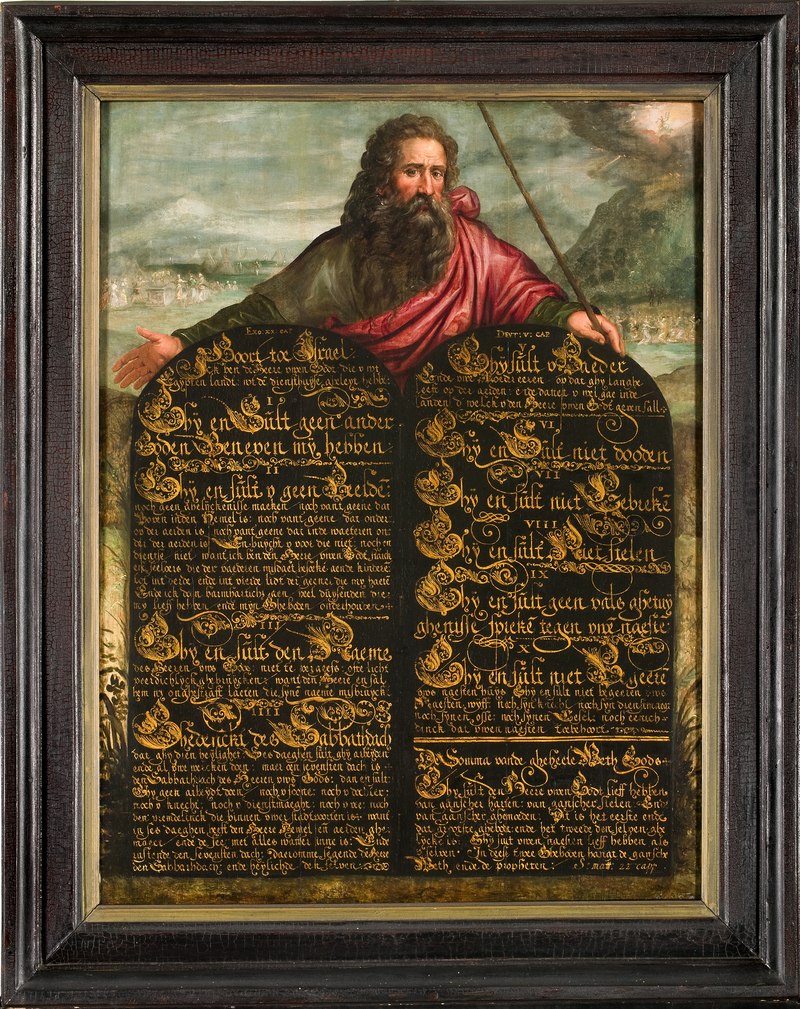Background and Context of the Book of Numbers
The Book of Numbers, traditionally attributed to Moses, holds immense historical and spiritual significance as it provides a detailed account of the Israelites’ journey from Mount Sinai to the edge of the Promised Land. This journey, both physical and spiritual, is filled with challenges, victories, and lessons that continue to resonate with believers today. The purpose of the book is universal and timeless, serving as a guide for believers in understanding spiritual warfare and preparing them to enter their own “Promised Land” – a place of spiritual fulfillment and abundance.
The authorship of the Book of Numbers is traditionally ascribed to Moses, who is also attributed as the author of the first five books of the Bible, known as the Pentateuch. The date of writing is estimated to be between 1440 and 1400 B.C., placing the events within a historical and cultural context that is crucial for understanding the broader narrative of the Israelites’ journey and God’s redemptive plan for His people. The purpose of writing the book is deeply rooted in the experiences of the first and second generations of Israel in the wilderness, focusing on the themes of obedience and rebellion followed by repentance and blessing. These universal and timeless themes provide valuable insights for believers as they navigate their own spiritual journeys and prepare to enter into the fullness of God’s promises for their lives.
#NaziriteVow #MessianicConnections #NumbersChapter6 #BiblicalSymbols #NewTestamentLinks
#DivineConsecration #MessianicProphecies #BiblicalRituals #GospelConnections #ScripturalInterpretation
#NaziriteTradition #BiblicalExploration #MessianicForetelling #JesusAndTheNaziriteVow #GospelRelevance
#DivineOrdinance #MessianicForeshadowing #NaziriteLifestyle #NumbersBook #ScripturalConnections
The Book of Numbers chronicles the experiences of the Israelites as they journeyed through the wilderness, detailing their triumphs, failures, and encounters with God. The theme of obedience and rebellion, followed by repentance and blessing, is interwoven throughout the narrative, serving as a powerful reminder of the consequences of faithfulness and disobedience. As the Israelites faced various challenges and tests of their faith, they experienced firsthand the faithfulness and grace of God, providing enduring lessons for believers today. This historical and spiritual context sets the stage for a deeper exploration of the messianic, prophetic, and symbolic connections to Jesus and the gospel found within Numbers chapter 6 and the broader narrative of the book.
Messianic Prophecies in Numbers Chapter 6
Numbers chapter 6 contains profound messianic prophecies that offer glimpses of the promised Messiah and the redemptive work of Christ. Within this chapter, key verses such as Numbers 6:24-26, 12:6-8, and 14:30-34 provide rich insights into the prophetic foreshadowing of Jesus and His role as the fulfillment of these prophecies. For example, the priestly blessing in Numbers 6:24-26, often referred to as the Aaronic blessing, is considered by many scholars and theologians as a significant foreshadowing of the work of the Messiah. This blessing, which includes the words “The Lord bless you and keep you; the Lord make his face shine on you and be gracious to you; the Lord turn his face toward you and give you peace,” is seen as a representation of God’s intention to bless and protect His people.
The concept of the promised Messiah is further echoed in the account of the red heifer and the bronze snake in Numbers, where symbolic elements prefigure the sacrificial work of Christ. The red heifer, whose ashes were used in the purification process, is understood as a type of Christ, whose sacrifice brings about spiritual cleansing and purification. Similarly, the bronze snake set up by Moses in the wilderness to provide healing to the Israelites who had been bitten by venomous snakes is viewed as a prefiguration of Christ’s redemptive work on the cross, where all who look upon Him in faith find healing and salvation. These messianic prophecies and their symbolic representations within Numbers chapter 6 provide profound insights into the redemptive plan of God and the fulfillment of these promises in the person and work of Jesus Christ.
The interpretation of these messianic prophecies in Numbers chapter 6 has been a subject of debate and discussion among scholars, theologians, and religious traditions. The contrasting perspectives between Christians and Jews on the interpretation and fulfillment of these prophecies have contributed to the ongoing dialogue on the identity of the Messiah and the significance of these passages in the broader context of biblical prophecy. Understanding the messianic prophecies in Numbers chapter 6 requires a deep exploration of the historical, cultural, and religious contexts in which these prophecies were given, shedding light on their enduring significance and their connection to the person and work of Jesus Christ.
Symbolic References to Jesus and the Gospel in Numbers Chapter 6
The Nazirite vow, as detailed in Numbers chapter 6, serves as a powerful symbol of dedication, consecration, and separation unto God, offering profound insights into the life and mission of Jesus and its connection to the gospel. The Nazirite vow required individuals to abstain from certain elements, including refraining from consuming wine and any product of the grapevine, and avoiding contact with the dead. This separation from worldly pleasures and defilement mirrors the purity and holiness of Jesus, who was set apart for God’s redemptive purpose.
Furthermore, the requirement for the Nazirite to let their hair grow symbolizes a visible sign of their dedication and commitment to God. In a similar vein, Jesus, as the ultimate fulfillment of the Nazirite vow, demonstrated an unparalleled level of commitment to God’s will. His life and ministry exemplified complete obedience and submission to the Father, serving as a living testimony to God’s redemptive plan for humanity. The symbolic connection between the Nazirite vow and Jesus underscores the profound spiritual significance of Jesus’ consecration and separation for the salvation of mankind.
Additionally, the conclusion of the Nazirite vow, which involved bringing specific offerings and shaving the head, points to the ultimate fulfillment in Jesus. Just as the completion of the Nazirite vow led to the presentation of offerings and the shaving of the head, the culmination of Jesus’ earthly ministry led to His sacrificial offering on the cross. His atoning sacrifice and the shedding of His blood represent the ultimate fulfillment of the Nazirite vow, bringing about spiritual consecration, purification, and redemption for all who believe in Him. Therefore, Numbers chapter 6 provides profound symbolic references to Jesus and the gospel, highlighting the spiritual truths and prophetic foreshadowing of the Messiah’s redemptive work.
The symbolism of the Nazirite vow and its connection to the life and mission of Jesus and the gospel carries profound implications for believers in understanding the depth of Jesus’ consecration and separation for the salvation of humanity. The parallels between the requirements of the Nazirite vow and the life of Jesus offer a deeper understanding of His commitment to fulfilling God’s redemptive plan and the transformative impact of His sacrificial work on the cross. This symbolic connection serves as a powerful reminder of the significance of Jesus’ consecrated life and its ultimate fulfillment in the gospel message, providing believers with a deeper appreciation of the spiritual truths embedded within Numbers chapter 6.
Prophetic Foreshadowing of Jesus in Numbers Chapter 6
The prophetic foreshadowing of Jesus in Numbers chapter 6 is evident in the Nazirite vow, presenting a profound representation of dedication and separation for a special purpose. The Nazirite vow involved refraining from certain activities, such as consuming alcohol and avoiding contact with the dead, and letting one’s hair grow as a sign of consecration to God. When we consider the life and mission of Jesus, we can draw parallels to the Nazirite vow. Jesus, in His earthly ministry, exemplified separation and dedication to the will of God. He abstained from earthly pleasures, led a life of purity, and was wholly devoted to fulfilling the purpose for which He was sent. In this way, the Nazirite vow becomes a prophetic representation of Jesus’ consecrated life, reflecting His separation from the ways of the world and His complete surrender to the divine will.
Furthermore, the conclusion of the Nazirite vow involves specific offerings and the shaving of the individual’s head, signifying the completion of the vow. This act of shaving the head and offering sacrifices finds its parallel in the ultimate sacrifice and culmination of Jesus’ mission on earth. His sacrificial death on the cross and His resurrection mark the fulfillment of His consecrated life and the ultimate completion of His mission, bringing salvation and reconciliation to humanity. Therefore, the Nazirite vow in Numbers chapter 6 not only foreshadows the consecrated life of Jesus but also points to the ultimate fulfillment of His redemptive work.
The prophetic foreshadowing of Jesus in Numbers chapter 6 serves as a reminder of the intricate interplay between the Old Testament narratives and their fulfillment in the person and work of Jesus Christ. The deeply symbolic and prophetic elements found within the Nazirite vow point to the redemptive mission of Jesus and the transformative impact of His life, death, and resurrection. This prophetic foreshadowing offers believers a profound understanding of the intricate tapestry of God’s redemptive plan, underscoring the continuity and fulfillment of these prophetic elements in the gospel message. Therefore, Numbers chapter 6 not only provides historical and religious significance but also serves as a source of spiritual insight into the prophetic anticipation and fulfillment of the Messiah in the person of Jesus Christ.
Practical Application and Relevance for Believers
The themes in Numbers chapter 6, including obedience, rebellion, repentance, and blessing, hold practical significance for believers, offering timeless lessons and insights for their spiritual journey. This chapter provides a powerful illustration of the consequences of obedience and rebellion, demonstrating the enduring impact of faithfulness and disobedience in the lives of the Israelites. The story of the Nazirite vow emphasizes the importance of consecration and separation unto the Lord, mirroring the call for believers to lead lives that are set apart for God’s purposes. Through the account of the Nazirite vow, believers can draw parallels to their own spiritual journey, understanding the need for consecration and commitment to God in a world filled with distractions and temptations. It serves as a reminder that obedience to God’s commands leads to a life of blessing and favor, while rebellion results in the loss of these divine benefits.
Moreover, the narrative in Numbers chapter 6 also highlights the theme of repentance and restoration. It showcases how, even in the midst of disobedience, there is an opportunity for reconciliation and renewal through genuine repentance. This provides an essential lesson for believers, emphasizing the importance of humility and a contrite spirit before God. The concept of repentance and restoration resonates with the core message of the gospel, reflecting the unchanging nature of God’s love and His willingness to forgive and restore those who turn back to Him. Additionally, the priestly blessing in Numbers chapter 6 serves as a source of encouragement and assurance for believers, reminding them of God’s desire to bless and keep His people, to make His face shine upon them, and to grant them peace.
In essence, Numbers chapter 6 offers believers a timeless guide for navigating the spiritual battles of life and embracing the promises of God. Its practical application extends to every aspect of a believer’s walk with God, from the importance of obedience and consecration to the transformative power of repentance and the assurance of God’s unending blessings. As believers seek to live out their faith in a world filled with challenges and uncertainties, the themes presented in Numbers chapter 6 provide invaluable insights and principles that can guide their spiritual journey and deepen their relationship with God.
The practical application and relevance of Numbers chapter 6 for believers today are rooted in its enduring lessons and spiritual insights, offering a timeless guide for navigating the challenges and triumphs of the Christian walk. The narrative of the Israelites’ journey, coupled with the symbolism and prophetic elements found within the chapter, provides believers with a rich tapestry of principles and truths that are applicable to their daily lives. The themes of obedience, rebellion, repentance, and blessing resonate with the universal experiences of believers, serving as a source of encouragement, correction, and guidance for their spiritual journey. Furthermore, the priestly blessing in Numbers chapter 6 serves as a profound declaration of God’s intention to bless, protect, and bestow His peace upon His people, underscoring the enduring relevance of this chapter in the lives of believers.
The Concept of the Promised Messiah and Christ’s Sacrifice
Numbers chapter 6 not only presents the Nazirite vow but also provides a profound insight into the concept of the promised Messiah and the prefiguring of Christ’s sacrifice. One of the most significant messianic prophecies in Numbers is found in the priestly blessing in Numbers 6:24-26, where God instructs Moses to tell Aaron and his sons to bless the Israelites with these words: “The Lord bless you and keep you; the Lord make his face shine on you and be gracious to you; the Lord turn his face toward you and give you peace.” This blessing reveals God’s intention to bless His people and keep them in His care, a foreshadowing of the ultimate blessing and redemption brought by the promised Messiah, Jesus Christ.
Furthermore, the Nazirite vow itself is a symbol of separation and consecration to God, mirroring the life and mission of Jesus. Just as the Nazirite was called to separate from certain earthly comforts and pleasures, Jesus, as the promised Messiah, separated Himself from the glory of heaven to dwell among humanity and accomplish the ultimate sacrifice for the redemption of mankind. The vow’s call for hair growth, abstinence from wine and strong drink, and avoidance of contact with the dead, all point to the purity and holiness of the Messiah, Jesus Christ, who fulfilled the law and lived a sinless life, ultimately becoming the perfect and spotless sacrificial lamb for the atonement of sin.
The life and teachings of Jesus in the Gospels are intricately intertwined with the messianic prophecies of the Old Testament, as they serve as a fulfillment of these prophecies. Christians believe that the sacrificial death and resurrection of Jesus are the ultimate fulfillment of the promised Messiah, as foretold in the Old Testament. The concept of the promised Messiah and Christ’s sacrifice presented in Numbers chapter 6 aligns with the Christian belief in the fulfillment of these prophecies through the life, death, and resurrection of Jesus Christ.
The concept of the promised Messiah and the prefiguring of Christ’s sacrifice in Numbers chapter 6 offer a profound portrayal of God’s redemptive plan and the fulfillment of His promises in the person and work of Jesus Christ. The intricate interplay between the messianic prophecies and their realization in the life and mission of Jesus underscores the continuity and fulfillment of these promises in the gospel message. The symbolism and prophetic elements found within Numbers chapter 6 serve as a powerful testament to the redemptive work of Christ, providing believers with a deeper understanding of the profound significance of Jesus’ sacrificial death and the fulfillment of Old Testament prophecies in His life and ministry.
The Nazirite Vow and Its Messianic Meaning
The Nazirite vow, as outlined in Numbers chapter 6, holds great significance in relation to the messianic meaning. This special vow, taken by individuals such as Samson and Samuel, involved a committed separation from certain worldly comforts and pleasures, symbolizing a desire to draw close to God and to live in a priest-like consecration. This unique vow, which could be taken by both men and women in Israel, represented a deep spiritual dedication and a desire for holiness and purity.
Moreover, the Nazirite vow bears a striking resemblance to the life and mission of Jesus. Just as the Nazirites separated themselves from the ordinary to draw near to God, Jesus, in His earthly ministry, exemplified a life of consecration and separation unto God. The strict guidelines of the Nazirite vow, such as abstaining from certain foods and letting the hair grow, reflect the disciplined and pure life of Jesus, who was set apart for the ultimate mission of bringing salvation to humanity. Additionally, the vow’s requirement of not touching a dead body, a symbol of defilement, mirrors Jesus’ ability to transcend the defilement of sin and death, ultimately conquering death through His resurrection.
In essence, the Nazirite vow serves as a prophetic foreshadowing of the consecrated life and mission of Jesus, illustrating the deep spiritual truths embedded in Numbers chapter 6 and its profound connection to the gospel message. The parallels between the Nazirite vow and the life and mission of Jesus offer a deeper understanding of Jesus’ commitment to fulfilling God’s redemptive plan and the transformative impact of His sacrificial work on the cross. This prophetic connection serves as a powerful reminder of the significance of Jesus’ consecrated life and its ultimate fulfillment in the gospel message, providing believers with a deeper appreciation of the spiritual truths embedded within Numbers chapter 6.
The Priestly Blessing and God’s Promise
The priestly blessing in Numbers chapter 6 provides a profound illustration of God’s promise to bless His people. This blessing, given by the priests to the Israelites, not only reflects God’s desire to bestow favor and protection upon them but also highlights His enduring commitment to watch over and care for His chosen ones. The priestly blessing consists of three distinct parts, each of which carries significant spiritual meaning. The Lord commanded Moses to instruct Aaron and his sons to pronounce this blessing over the Israelites, ensuring that His people would receive His divine favor and grace.
The first part of the priestly blessing, “The Lord bless you and keep you,” signifies God’s desire to bestow blessings upon His people and to protect them from harm and evil. This expression of divine care and guardianship conveys the idea that God is intimately involved in the lives of His people, watching over them with love and concern. The second part, “The Lord make His face shine upon you and be gracious to you,” demonstrates God’s favor and kindness, illuminating the path of His people with the light of His presence. This aspect of the blessing emphasizes the concept of divine grace and mercy, portraying God as a loving and benevolent Father who delights in showing compassion to His children. Finally, the third part of the blessing, “The Lord lift up His countenance upon you and give you peace,” encapsulates the idea of God’s peace and tranquility resting upon His people. This profound declaration signifies the assurance of God’s presence and the bestowal of His peace, bringing a sense of wholeness and well-being to those who receive it.
The priestly blessing in Numbers chapter 6 serves as a powerful reminder of God’s unwavering promise to bless, protect, and bestow His peace upon His people. This timeless and profound blessing not only reflects the character of God but also holds significant relevance for believers today, as it underscores the enduring nature of God’s faithfulness and His desire to abundantly bless those who seek Him. The priestly blessing serves as a profound declaration of God’s intention to bless, protect, and bestow His peace upon His people, underscoring the enduring relevance of this chapter in the lives of believers. This blessing not only reflects the character of God but also holds significant relevance for believers today, emphasizing the enduring nature of God’s faithfulness and His desire to abundantly bless those who seek Him.
Summary and Relevance of Numbers Chapter 6
Numbers chapter 6 provides a rich tapestry of messianic, prophetic, and symbolic connections to Jesus and the gospel.



